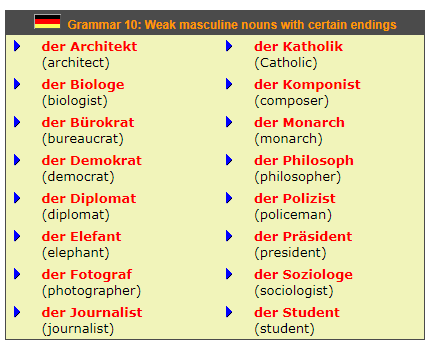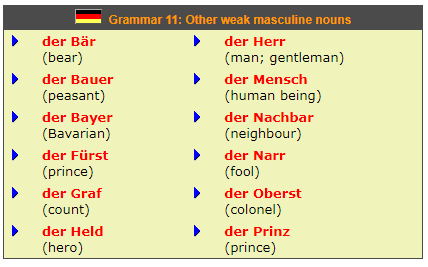
Other German masculine nouns
There are a few native German weak masculine nouns which do not end in "-e" in the nominative singular:

Note the irregular declension of "der Herr". This weak masculine noun adds "-en" throughout the plural, but "-n" in the singular for all cases other than the nominative.

 英语
英语 日语
日语 韩语
韩语 法语
法语 西班牙语
西班牙语 意大利语
意大利语 阿拉伯语
阿拉伯语 葡萄牙语
葡萄牙语 越南语
越南语 俄语
俄语 芬兰语
芬兰语 泰语
泰语 丹麦语
丹麦语 对外汉语
对外汉语

